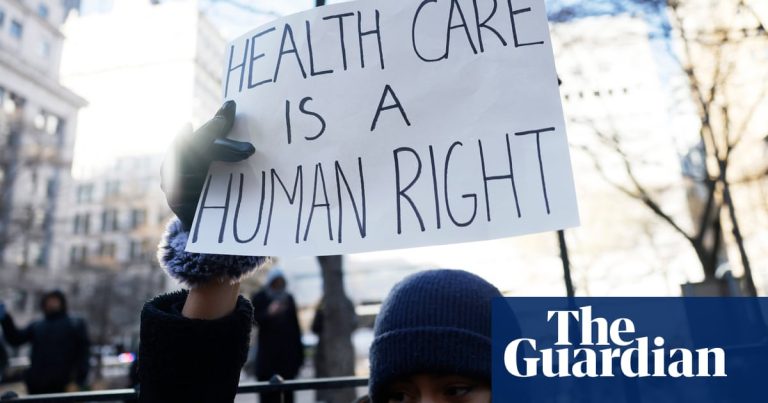In the wake of murder of Brian ThompsonCEO of UnitedHealthcare, and the outpouring of frustration over insurance coverage, prior authorizations have emerged as a particular obstacle in health care.
Prior authorization requires medical providers to obtain a insurerbefore patients receive health care or medications.
“As a physician, prior authorization is by far the most frustrating thing about practicing outpatient medicine today,” said Dr. Gabriel Bosslet, a pulmonologist and professor at the University’s School of Medicine. Indiana University.
“I spend more time trying to figure out how I should get this drug approved than I do seeing the patient, making a diagnosis and writing the prescription.”
Originally intended to control the cost of certain medications and treatments, prior authorization requirements have increased in recent years and now weigh on routine, inexpensive care.
“This didn’t really happen five or seven years ago,” Bosslet said.
Miranda Yaver, assistant professor of health policy and management at the University of Pittsburgh, noted that “prior authorization is something that has really proliferated with the growth of managed care in the United States.”
A study found that reforms such as setting maximum deadlines for insurers to respond and standardizing requests would be beneficial. help provide patients with the care they need.
Several states and Washington, DC, have passed laws to reform prior authorization practices.
A federal bill that would speed up authorizations like these for Medicare Advantage plans has also been reintroduced this year in Congress. In January, the Centers for Medicare and Medicaid Services finalized a new rule to streamline prior authorizations to reduce costs.
Nearly a quarter (24%) of doctors say a prior authorization has “resulted in a serious adverse event for a patient in their care,” according to one study. investigation of the American Medical Association (AMA).
Yaver interviewed a patient with severe immunodeficiency who was denied medication because her multiple infections were serious but not yet life-threatening — “a mind-boggling assessment,” Yaver said.
The new Trump administration has announced greater support for programs like Medicare Advantage, in which 99% of enrollees are enrolled. it is necessary to have prior authorization. That could mean more administrative burdens, more denials and hindered access to care, Yaver said.
Medical practices report an average of 43 prior authorization requests per physician each week, according to the AMA survey. This is why more than a third (35%) employ staff whose sole mission is to manage prior authorizations.
Despite everything, some requests still reach doctors.
Bosslet usually works with patients in the hospital, but once a week he sees them in a clinic. Every other day in the clinic, he estimates, he has to appeal denials of prior authorization from insurers, even after staff have submitted all the necessary documents.
Recently, that meant fighting with an insurer to prescribe a common asthma treatment to a patient who had relied on the medication for more than a year.
He called the number listed on the documents and eventually reached a person on the other end who asked Bosslet to download a form buried in the insurer’s website.
after newsletter promotion
A few days after submitting it, he received a notice that he had not completed the form quickly enough. To appeal a second time, he had to call a new number, which eventually directed him to a fax number to which he could send the new appeal – but without giving him any information on which form to use or what information necessary regarding the prescription.
Part of the confusion comes from the fact that “prior authorization” means something different for each insurer and plan, with different forms, questions and submission process.
“It’s like you have to learn a completely new language every time a call is denied,” Bosslet said.
And all of this work must be done in addition to the time providers spend with patients.
“I try to deal with this in my clinic when I have patients scheduled,” Bosslet said, adding that the whole process seems designed to cause providers to give up.
“The system works exactly as intended, it creates confusion and puts people in situations where they have to spend more money,” he said.
Bosslet continued: “People are frustrated that health insurance companies are making billions of dollars.
“There is a lot of frustration that these institutions are taking huge amounts of money out of the health care system and doing it to the detriment of patients.”
The Wellcare insurer did not respond to press requests. When first contacted, an automated message from Wellcare said it expected a response within 24 hours; When contacted three days later, the message instructed journalists to email another media account.
Bosslet sent the insurer a new form containing the requested information – information that was on the original prescription. It still didn’t work.
“I’m furious,” Bosslet said.
The first problem regarding the asthma prescription occurred on December 4th. At press time, the drug had still not been approved. It costs $31.


